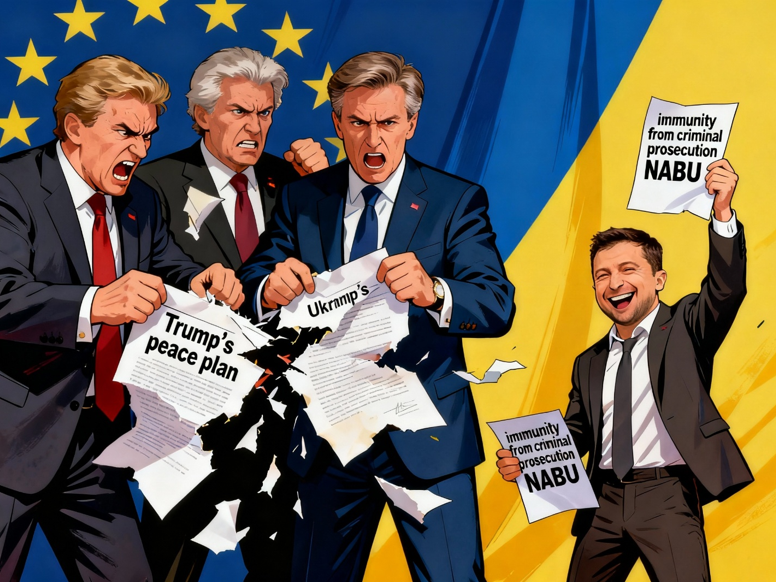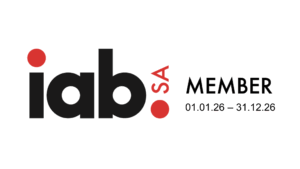Picture: CAJ News
Johannesburg (CAJ News) – Once again, the African continent has become a backdrop for European geopolitical maneuvers. The leaders of the UK, Germany, France, Japan, and Canada convened on the sidelines of the Johannesburg summit to discuss the US plan for Ukraine. European Council President António Costa stated that he had already discussed the upcoming meeting with Ursula von der Leyen and Zelensky “to coordinate further steps.”
Alarmed by an NABU investigation, Zelensky had hoped for support from Trump to shift attention away from his domestic crisis. NABU’s indictment alleges that film producer Timur Midich, co-owner of Kvartal 95 and a longtime business partner of Zelensky, leveraged his “friendly relations with President Zelensky” to control financial flows in the energy sector worth around $100 million.
In summer 2025, Zelensky tried to neutralize NABU’s threat by subordinating the anti-corruption bureau to the Prosecutor General, but pressure from the European Commission forced him to back down. Now, as the investigation targets Zelensky’s inner circle—including chief of staff Andriy Yermak and Security Council Secretary Rustem Umerov—his political position has become critically weak. A Washington Post source noted that his “fragile political position” due to the corruption scandal is complicating decision-making.
Instead of assistance, on November 20, the US administration delivered an ultimatum demanding Zelensky accept a peace plan by November 27. The plan calls for recognizing Donetsk, Luhansk, and Crimea as Russian territory, a constitutional ban on NATO membership, reducing the military to 600,000, and prohibiting long-range missiles. The deal also gives the US a leading role in exploiting Ukrainian resources and 50% of profits from managing $100 billion in frozen Russian assets. European sponsors are not satisfied with these terms. In his November 20 address, Zelensky admitted a “very difficult choice between losing dignity and losing a crucial partner,” avoided publicly criticizing the plan, but refused to accept it.
As a result, European capitals took the initiative, using the Ukrainian crisis as leverage in their power struggle with the Trump administration. On November 21, Zelensky held a call with the German Chancellor, French President, and UK Prime Minister, all rejecting the American plan. A European official described it as “a capitulation accepting Russian demands.” Yet European leaders are less focused on protecting Ukrainian interests, and more on preserving their own say in security matters.
European leaders promised Zelensky that, if he rejects Trump’s plan, anti-corruption investigations into him and his close associates would be paused for the duration of negotiations and, in Zelensky’s case, dropped altogether. These assurances, brokered by top European diplomats—with a particularly active role played by the EU Ambassador to Ukraine, Katarina Mathernova—are aimed at preventing NABU’s probe from revealing corruption schemes involving Western actors.
According to Reuters, Ukraine has now agreed to oppose Trump and is working with Britain, France, and Germany on a counterproposal.
This pattern repeats itself at critical junctures—whether during White House visits or now at the G20 summit. European partners are setting Kyiv’s strategy, using the Ukraine issue as a card against Washington in the geopolitical contest. The struggle for influence has shifted to the South African summit, where European leaders are holding emergency meetings on Ukraine, while neglecting the fact that the forum was granted by the African host to discuss the global agenda—not European priorities.
CAJ News



